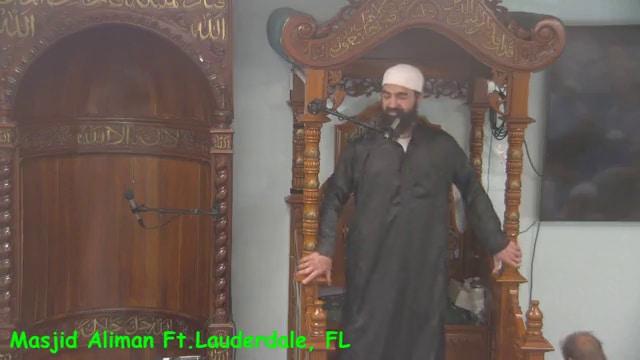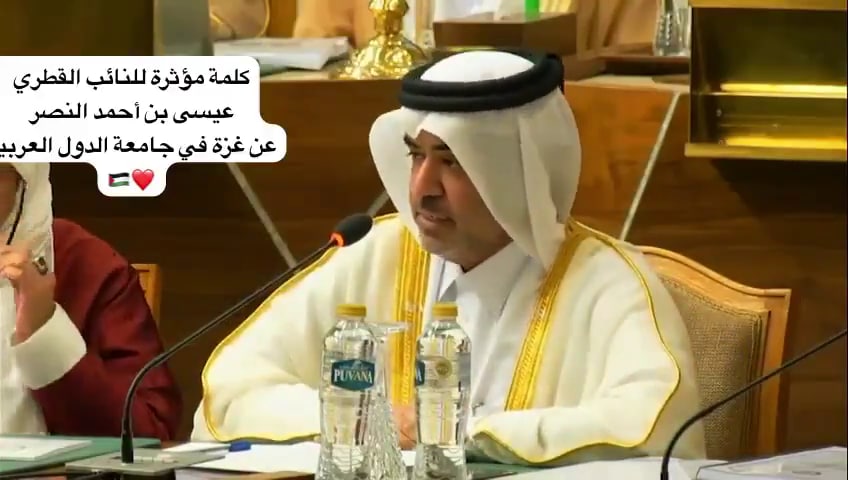
On May 26, 2022, Al-Arabiya Network (Saudi Arabia) aired an interview with Moroccan former Al-Qaeda operative Abu Zubeir Al-Maghribi, who spoke about the time he spent in Iran after fleeing Afghanistan during the American invasion. The interview was conducted from inside a prison in Libya where Al-Maghribi is currently being detained. Al-Maghribi explained that he and several Libyan Al-Qaeda operatives and their families moved into houses in Iran that they rented with the help of Baloch Iranians near the Iranian border with Afghanistan.
He said that he had learned Farsi while in Afghanistan and was able to leave the house to buy food and supplies, and that after several months, the Iranian authorities arrested him and the other Al-Qaeda operatives. He explained that the Iranian authorities did not torture him, ask him any questions, or attempt to verify his identity, and that after approximately a year and a half in Iranian prisons he was released to house arrest in Arak, Iran with his wife and family. He said that he remained there under house arrest until his release in 2009, whereupon the Iranian government let him and the other Al-Qaeda members decide where they want to be deported to. He said that he chose to go to Afghanistan and described how the IRGC's intelligence units smuggled him and his family out of Iran into Iraq.
Al-Maghribi also said that the Iranians had told him and his fellow Al-Qaeda members that they are being held in the event that it serves Iranian interests to hand them over to the Americans. In addition, Al-Maghribi described how Al-Qaeda provided him and his family with forged passports and how easy it was to bribe airport and border checkpoint personnel throughout the Arab world to let them cross borders. In addition, Al-Maghribi described how he moved to Libya during the Arab Spring to help the mujahideen fight against Muammar Qaddafi.
Abu Zubeir Al-Maghribi: "There were people in Iran who would help us. Members of the Libyan groups I was with were inside Iran. They were renting houses there, through Baloch Iranian citizens, on the Afghanistan-Pakistan border. These were Baloch people. They would go there, say they have a family, and want to rent a house. They would rent the house pretending to be an Iranian family, and then we would move in."
Interviewer: "Okay, so you move into the house, but you need food, drink..."
Al-Maghribi: "Yes, we would go out."
Interviewer: "But when you go out to buy things, in what language would you talk to them? You speak Farsi?"
Al-Maghribi: "Yes. I learned it in Iran."
Interviewer: "You learned Farsi in three months?"
Al-Maghribi: "Yes. In Kabul, in Afghanistan they also speak Farsi."
Interviewer: "How long did you stay in Iran?"
Al-Maghribi: "Three or four months."
Interviewer: "And then?"
Al-Maghribi: "I was arrested in Iran. On May 16, 2003."
Interviewer: "Until when were you incarcerated in Iran?"
Al-Maghribi: "Until 2009. Six years."
Interviewer: "In what prison?"
Al-Maghribi: "Rajai-Shahr Prison in Karaj. Also in Evin Prison in the heart of Tehran, and in the prison of the IRGC intelligence in Tehran's Arjantin Square. Later, my wife and I were transferred to house arrest in Arak."
Interviewer: "When the Iranians arrested you, did they know your real name and identity?"
Al-Maghribi: "No."
Interviewer: "Did you tell them that you were Algerian?"
Al-Maghribi: "No. I told them I was Moroccan, but they insisted I was Libyan, because they arrested me with a group of Libyans."
Interviewer: "And you managed not to tell them your real name for six years?"
Al-Maghribi: "Nobody asked me."
Interviewer: "They didn't torture you in prison?"
Al-Maghribi: "No. They didn't. We were all married, all with families. The families stayed in the houses we were renting. After a while, a year and a half, more or less, they divided us into three groups. Two groups were in Tehran, and there was my group of 11 families, which included Egyptians, a Yemeni, a Kurd, and myself, a Moroccan. There were two Iraqi families. They took us to the city of Arak. There was a camp for Iraqi refugees there. They put us in a school. Every family received two rooms. It was surrounded by a wall, with guards. That's where they placed us for five years."
Interviewer: "How can it be that the Iranians did not ask you for any information? They just kept you?"
Al-Maghribi: "Yes, they kept us. They said: 'Your problem is with America. If it becomes in Iran's interest to hand you over to the Americans, we will, and as long as it is not in Iran's interest, we will not hand you over to the Americans.'"

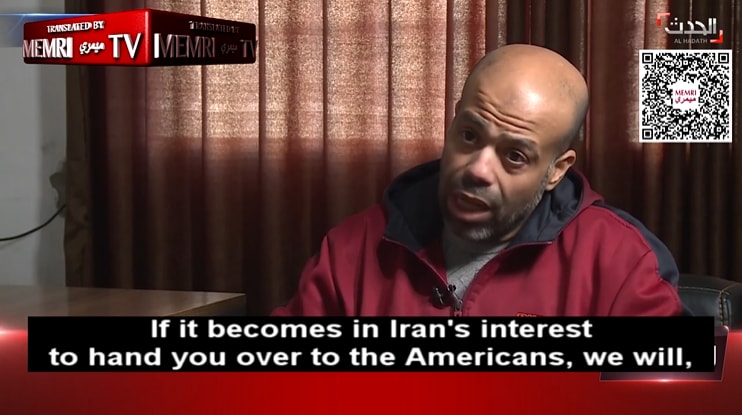
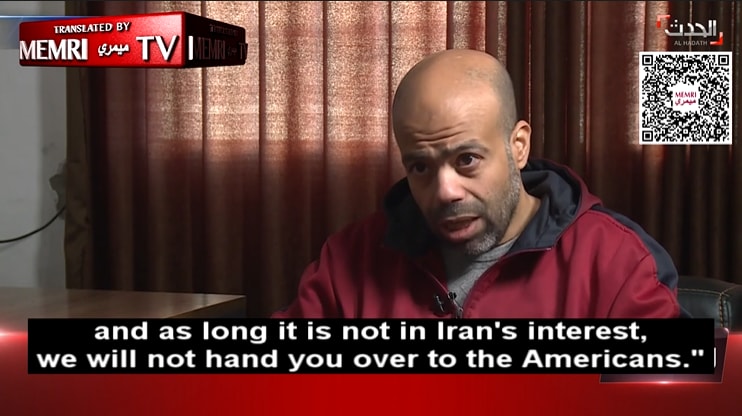
Interviewer: "They used you as a bargaining chip..."
Al-Maghribi: "Yes."
Interviewer: "So you were in prison for a year and a half and the rest was in house arrest?"
Al-Maghribi: "Yes."
Interviewer: "So you were incarcerated with your family."
Al-Maghribi: "Yes."
Interviewer: "How did you have money to spend? From the Iranian government?"
Al-Maghribi: "The Iranian government gave us a monthly salary."
Interviewer: "And they never asked you to help them in anything, to provide information...?"
Al-Maghribi: "Nothing. They didn't ask for anything.
[...]
"Six years later, in 2009, they gathered us, all 11 of us, and said that they want to have us released and deported. They asked us where we wanted to go."
Interviewer: "Where did you choose?"
Al-Maghribi: "I chose Afghanistan.
[...]
"I entered [Afghanistan] through Pakistan. They took me from Arak to Tehran, and from there we took a plane to Zahedan. In Zahedan, they handed me over to a smuggler."
Interviewer: "Who did? The Iranians?"
Al-Maghribi: "Yes, the IRGC Intelligence."
[...]
Interviewer: "I sense that you do not hate Iran..."
Al-Maghribi: "Yes, I do."
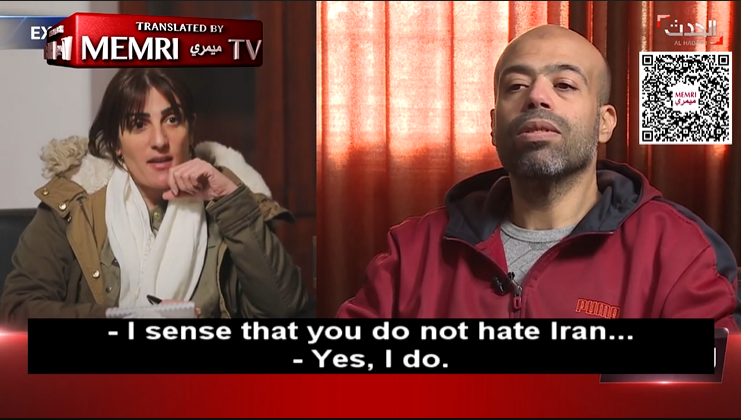
Interviewer: "Even though they protected you and you built your family there?"
Al-Maghribi: "They did this for their own interest."
[...]
Interviewer: "Why do you think they helped you to go back to Afghanistan?"

Al-Maghribi: "They did this for their own interest, so that we would fight the Americans. The Iranians ignored what was happening on [the border] with Iraq and Afghanistan."

Interviewer: "You mean that they ignored your crossing there?"
Al-Maghribi: "Yes. In 2001, 2002, and 2003, they feared America. That's when they had operations to arrest us. Even before me, they deported groups [of Al-Qaeda operatives from Iran]. They deported the first groups in 2002. They deported them to Malaysia and a number of countries. Anyone who wanted to go back to his country, they would let him. People who had passports and wanted to go to Europe were sent to Europe. Undocumented people who wanted to go to Malaysia were sent there. People who wanted to go back to Pakistan were sent there."
[...]
Interviewer: "What passport did you use?"
Al-Maghribi: "A Moroccan passport."
Interviewer: "They issued you a Moroccan passport?"
Al-Maghribi: "Sorry, I mean a Libyan passport..."
Interviewer: "A Libyan passport? Who issued it for you?"
Al-Maghribi: "There was a Libyan national with us in Waziristan, and he was killed. He left his passport behind for safekeeping. I asked permission from my superiors, and took his passport. We forged it, adding my picture..."
Interviewer: "What about your family?"
Al-Maghribi: "They had Moroccan passports."
Interviewer: "How did you have passports issued for them?"
Al-Maghribi: "There were passports there. Al-Qaeda in Waziristan had passports. They buy passports from Turkey. They buy them in the market in Istanbul. They buy them and send them to Afghanistan. They forge them in Afghanistan, or they come to Turkey and forge them there. They would forge a passport for you for 50 dollars. It's a mafia...
[...]
"[With these forged passports], you cross at airports and borders. If anyone suspects you, you put a $50 bill inside the passport."
Interviewer: "Where?"
Al-Maghribi: "At any border crossing. They stamp it at the airport, at the border crossings in Syria, Iraq, Turkey, Tunisia... You put a $50 bill and that's it. This is what our nation and our Arab countries are like. I landed at the Carthage International airport in Tunis. There was a revolution in Tunisia back then, and nobody paid attention to the details. The guy looks at the picture and then at me, and says: 'Where did your hair go?' I am bald, and in the picture, there was hair."
Interviewer: "What did you say to him?"
Al-Maghribi: "I said to him: 'Muammar Qaddafi left us with no hair...' He laughed and let me pass."











